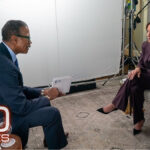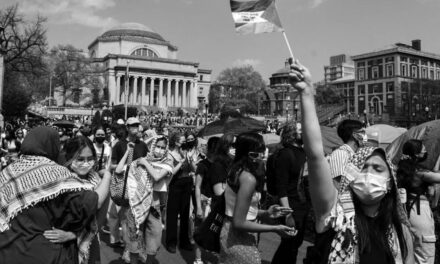
The Treasury Department Has a Financial 'No-Fly' List with Over 1,000 Pages
The U.S. Treasury Department apparently has the authority to punish individuals found on a blocked persons list, even if they aren’t the correct person listed.
The Specially Designated Nationals and Blocked Persons List (SDN) is a 1,026-page long list of individuals and organizations barred from doing business in the U.S. The people on this list are not only blocked from U.S. banks, but also the global financial system.
In the last five years, the SDN has doubled in numbers. The Office of Foreign Assets Control, or OFAC created the catalog in 1940, but following the 911 attacks the agency added much more names to the list.
“As part of its enforcement efforts, OFAC publishes a list of individuals and companies owned or controlled by, or acting for or on behalf of, targeted countries. It also lists individuals, groups, and entities, such as terrorists and narcotics traffickers designated under programs that are not country-specific. Collectively, such individuals and companies are called “Specially Designated Nationals” or “SDNs.” Their assets are blocked and U.S. persons are generally prohibited from dealing with them,” according to the Department of Treasury.
The list is even available for download on the treasury.gov website.
But, the scary thing is that individuals who happen to share the same name as someone on this list are also often punished. They have to undergo a long and tedious process to prove they aren’t the person on the financial no-fly list.
“Muhammed Ali Khan tried to do one of the most boring, responsible things an American taxpayer can do: set up a government-guaranteed retirement savings account. He was rejected because the Treasury Department thought he might be a terrorist,” writes The Huffington Post.
“He isn’t. He’s a software consultant from Fullerton, California. But he shares a first name (with a different spelling), last name and middle initial with a financier of a Pakistani terror group. That man, Mohammad Naushad Alam Khan, is on the Treasury Department’s Specially Designated Nationals and Blocked Persons List (SDN).”
Khan also found that he was flagged on his credit reports. But again, he was wrongly believed he was a terrorist and was penalized by the government.
“It can become a business disadvantage to people whose name just happens to be similar to that of someone actually on the list,” said Peter Djinis, a former regulator at the Treasury Department to The Huffington Puff. “This is a real problem.”
So how does the government indirectly punish the incorrectly named individuals and businesses?
“They can have their airline ticket purchases rejected or hotel reservations declined. Their bank accounts can be frozen. Loans to buy a home or a car can be declined. Wire transfers can be seized and held for up to a year while the freeze is litigated, which can destroy small businesses, block real estate transactions or delay inheritances,” writes The Huffington Puff.
Although Khan is an example of one of the many victims of the SDN, the Treasury Department told The HuffPost that the “OFAC manages individuals and entities on its list in coordination with relevant U.S. government agencies, and has processes in place to ensure that designations are applied appropriately, and to assist and provide due process to anyone who believes they should be removed.”
Unfortunately, the agency has limited personal information about the individuals on the list, making false positives common.
Author’s note: The big problem with the SDN is that it bypasses the “due process” clause of the Fifth Amendment. The Fifth Amendment says that no one shall be “deprived of life, liberty or property without due process of law,” this is in place to protect U.S. citizens from the federal government. This list is similar to the “no fly” list, which both allow the government to punish people without judge or jury. With that in mind, we deem these lists un-constitutional.

























If Greenlanders and Canadians want to join the US of their own free will, they should have a right to…
Yeah, this will end well. I see millions of illegals stepping up to give pics n prints in return for…
Heh, your party wants to take annex Greenland, turn Canada into the 51st state, develop beachfront condos in GAZA after…
Fellows citizens sinking - yeah sinking in delusions and hysteria straight outta hate. :)
I guess We TP has not portfolio, no 401k, or he’d be crying. I actually made money yesterday, so who’s…